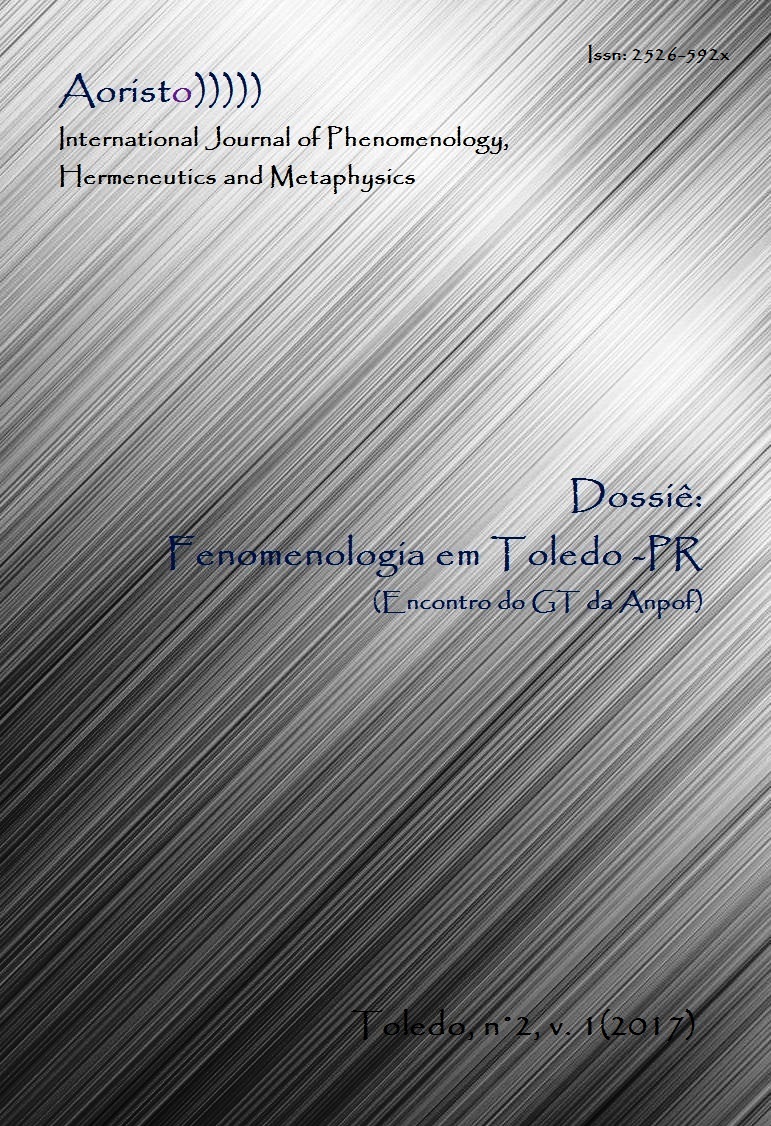A study about the universals in Ideas I
DOI:
https://doi.org/10.48075/aoristo.v1i2.30569Palavras-chave:
Husserl, Fenomenologia, Ideias, UniversaisResumo
The problem of universals remains a philosophical theme not only in ontology but also in epistemology. In Husserl, there are particular universals, the noematic ‘X’, the identical, and universals stricto sensu, atemporal universal names. In this paper, I present the theme as it is analyzed by Husserl in Ideas I. In the first section, I describe the trajectory to the universals highlighting the parallelism between noese and noema. In the second section, I draw the reflection of this problem on the philosophy of language which is also affected by the noeticnoematic correspondence. In the third and last section, I show how the investigation about the universals moves in the noematic sphere, and conclude defending the possibility of reaching the universal strict sense departing from the noematic ‘X’.
Downloads
Publicado
Como Citar
Edição
Seção
Licença

Este trabalho está licenciado sob uma licença Creative Commons Attribution-NonCommercial-NoDerivatives 4.0 International License.
Copyright Notice
1. I grant the AORISTO – International Journal of Phenomenology, Hermeneutics and Metaphysics the first publication of my article, licensed under Creative Commons Attribution (which allows sharing of work, recognition of authorship and initial publication in this journal).
2. I confirm that my article is not being submitted to another publication and has not been published in its entirely on another journal. I take full responsibility for its originality and I will also claim responsibility for charges from claims by third parties concerning the authorship of the article.
3. I also agree that the manuscript will be submitted according to the Aoristo’s publication rules described above.
License Creative Commons
This work is licensed under a Creative Commons Atribuição-NãoComercial-CompartilhaIgual 4.0 Internacional, which allows you to share, copy, distribute, display, reproduce, in whole or in part, for as long as there is no commercial purpose, and authors and source are cited.


